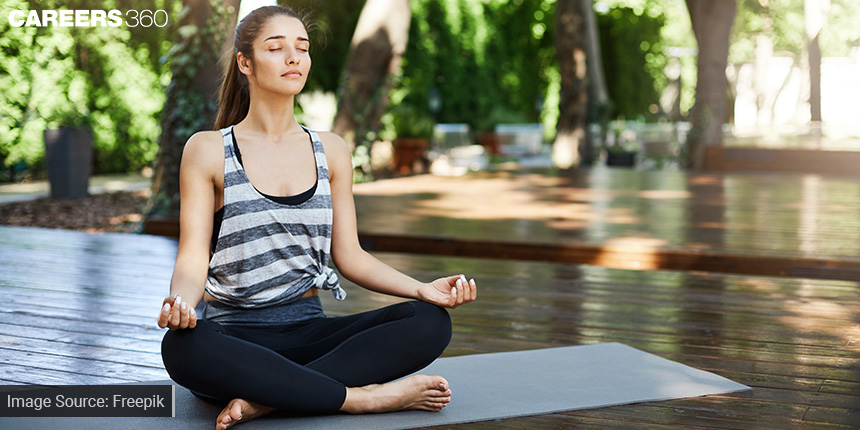Coping Mechanisms You Should Develop To Deal More Effectively With Situations
Social media has popularised the term coping mechanisms or defence mechanisms amongst the youth especially. The American Psychological Association (APA) defines coping mechanisms as, “any conscious or non-conscious adjustment or adaptation that decreases tension and anxiety in a stressful experience or situation”

Defence mechanisms are essentially unconscious or automatic responses initiated by the mind to decrease stress levels caused by stimuli. Defence mechanisms can be both dysfunctional, i.e. they may be reducing the stress/anxiety caused by the primary concern but may have a negative reaction upon the person and/or those around them; or functional, i.e. they reduce the stress and may have no negative reaction or even a positive one.
Coping mechanisms on the other hand are usually conscious, much more overt, and could be active or semi-automatic.
Why Do We Need Coping Mechanisms?
In the Encyclopedia of Mental Health, it is stated that, “The purpose of these mental functions is to protect the individual from being disturbed by excessively painful feelings, drives (motives), or ideas. The operation of defence mechanisms is generally unconscious – that is unknown to the individual – for the function of disguise is effective only if the individual is unaware of the deception.”
However important they are, the unproductive ones or dysfunctional ones need to be modified and unconscious ones must be made conscious, to build resilience and reduce mental haziness.
Also Read | 4 Things You Must Discuss With Your Counsellor
However, some individuals become so entangled in these defence mechanisms and routinely use them as a way of avoiding their feelings and emotions or excusing their behaviour. This can have a negative impact on the person and relations.
Identifying Your Coping Mechanisms
While renowned psychologist Sigmund Freud enumerated some defence mechanisms (projection, displacement, sublimation, etc.) that do find their presentation in various everyday behaviours, coping mechanisms further can be more active and conscious such as—
- Eating sweet/fried/salty food whenever in distressing situations
- Isolating from other people to deal with everything by oneself
- Picking up fights
- Excessive sleeping
- Drinking/smoking/narcotics
- Excessive working out
- Excessive shopping
- Excessive video gaming
- Impulsive haircuts, piercings and tattoos
- Excessive sex
- Self-harm
Some of these you may be aware of, while some you resort to so often, that they may have become automatic. The focus is to become aware and replace unhealthy forms of coping with healthy ones.
Also Read | Negative Emotions: 4 Positive Takeaways From Difficult Experiences
Healthy Coping Mechanisms
The idea is to become aware of such defence mechanisms that lead you to experience emotional or mental haziness, impulsivity, or lead you to have automatic dysfunctional behaviours. There will be situations where the crisis experienced will simply be too intense and not allow you to be aware of your mechanisms.
Problem-Focused Vs Emotion- Focused
Mechanisms are either problem-focused or emotion-focused, i.e. the former keeps the aim as managing, solving, and moving into and out of the challenge; whilst the latter aims to manage and navigate the emotions surrounding the situation. Both are important and often go together.
The following are some healthy, conscious, and functional coping mechanisms you can choose to inculcate for resilience, mental acuity and development and utilise either separately or some clubbed together.
Resilient Attitude
During difficult times, the way you approach a situation can greatly impact the outcome. If you allow your mind to rely on defence mechanisms, it can lead to a negative spiral that affects your response to the crisis. Frame situations positively and use optimistic self-talk to reinforce your strengths. Self-talk is the internal dialogue you have with yourself about your abilities and worth. It's important to avoid negative self-talk, such as self-deprecating comments or being overly critical of yourself. Instead, choose words that inspire resilience and reinforce your strengths.
Planning Ahead
How we approach the crisis will help with the initial struggle. Planning and preparing helps map out a part or whole of the crisis. You can set to-do lists to conquer bit-by-bit so no day feels overwhelming. Set goals that will motivate you to keep moving forward and manage your time as effectively as possible. Make use of calendars or reminders to avoid wasting time and hyperventilating.
Make Data Tangible
One of the greatest pickles people are faced with are managing the different parts of the crisis. It feels like one is stuck in quicksand, sinking deeper without something to hold onto. This is because all of the coping and solving is happening in one's mind and that always makes one feel overwhelmed. To reduce this feeling one must take all this information, a jumbled web, and put it in tangible forms, especially visual and written. Utilise journaling, diagramming, vision boards, and written detailing.
 Planning and preparing helps map out a part or whole of the crisis. You can set to-do lists to conquer bit-by-bit so no day feels overwhelming.
Planning and preparing helps map out a part or whole of the crisis. You can set to-do lists to conquer bit-by-bit so no day feels overwhelming.
Visualisation
Our brains cannot distinguish between what we imagine and what actually happened. So we can use this to our advantage by engaging in visualisation exercises.
- Visualise having solved the concern or having coped in a healthier manner. Sit with the feelings of achievement and use this to motivate yourself from time to time.
- Visualise backwards from the crisis having been overcome about the steps it would perhaps take to achieve this in your tangible reality.
- Visualise physical or emotional strength seeping into your mind and body.
Seek Assistance
For many of us, our automatic response is to isolate ourselves from our friends and family and relationships. It is critical therefore to seek help, vocalise your concern in your emotional and social support circles.
Communication And Clarity
When you are vocalising concerns, seek to be clear and communicate frequently. Miscommunication can lead to confusion, stress and anxiety. Attempt to be clear about the concern itself, the plan, the assistance required etc.
Self -Care
If your body and mind are busy tackling the previous concerns, you will not have the mental and physical bandwidth to take on new crises. Engage in different forms of self care.
- Hydrate
- Sleep enough and on time
- Eat adequately
- Avoid physical duress
Mindfulness
In today's fast-paced world, it can be challenging to prepare, plan, take care of ourselves, seek help, and visualise our goals effectively. That's why it's essential to slow down and cultivate mindfulness in our words, actions, and behaviours. Contrary to popular belief, taking a step back and slowing down actually improves our efficiency instead of trying to rush through things.
Physical Movement
Engage in physical exercise of different types to move your body. The mind and the body are fused and if the body remains stagnant due to emotional or mental pressure, it will begin to show negative effects. It is crucial therefore to move one’s body.
Engage In Creativity
The creative force is the life force in humans. When the creative force remains untapped, one begins to feel deadened. Coping in a healthy manner should absolutely include doing some kind of creative activity frequently. Creativity is also an unconscious and imperceptible way for the mind to express and process your feelings and thoughts.
- Draw/doodle/paint freely, let the canvas help you fill it
- Dance freely to drum music or instrumental music
- Hymn, sing or vocalise
- Play an instrument without necessarily creating a melody
- Play with some playdough or clay
Also Read | Stay Grounded, Prevent Stress: Follow These 7 Mindfulness Tips
Setting Healthy Boundaries
When in crisis, set healthy boundaries with others and oneself to avoid confrontation, unnecessary strife and stress.
- You can set boundaries at school about how much you can possibly work this week or on a particular day or project.
- You can set boundaries with your friends, partners or family about how much time you can spend with them, how much mental or emotional bandwidth you may have to support them or hear them out.
- Set boundaries with yourself about what you will and will not do.
Therapy
A therapist can help you recognise your coping mechanisms and help you slowly modify them to help you grow and heal. Therapists are trained to observe your defence mechanisms and can help you see them clearly and in a structured form avoid the ones that are causing harm.
Articles
Upcoming Exams
Application Date:20 January,2025 - 18 April,2025